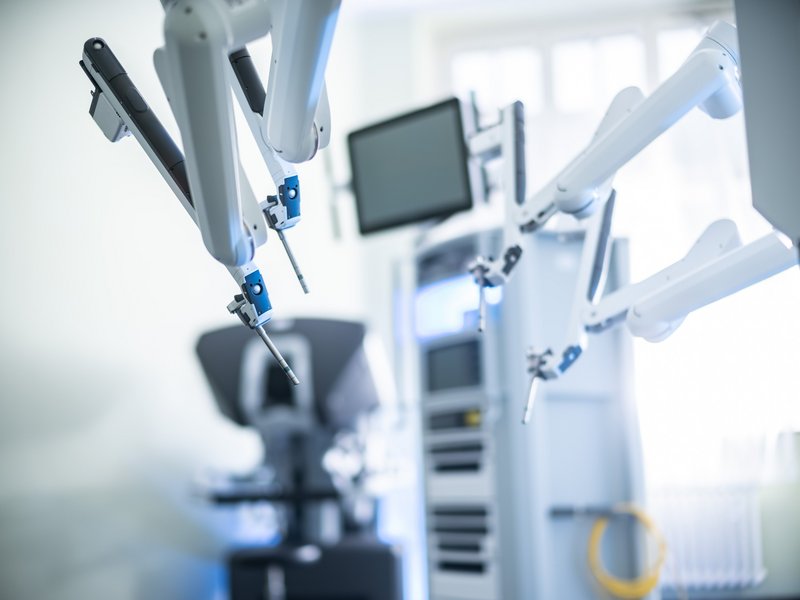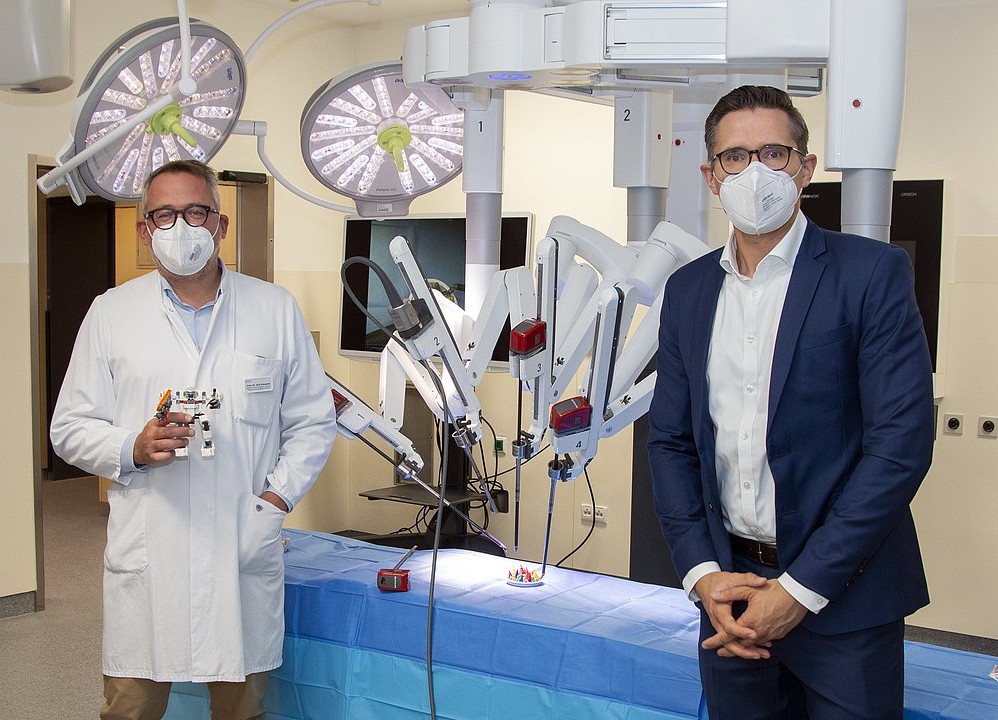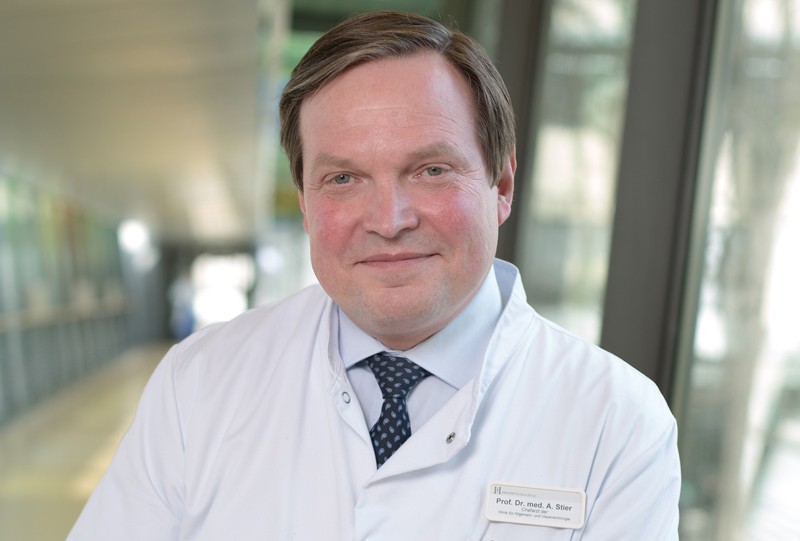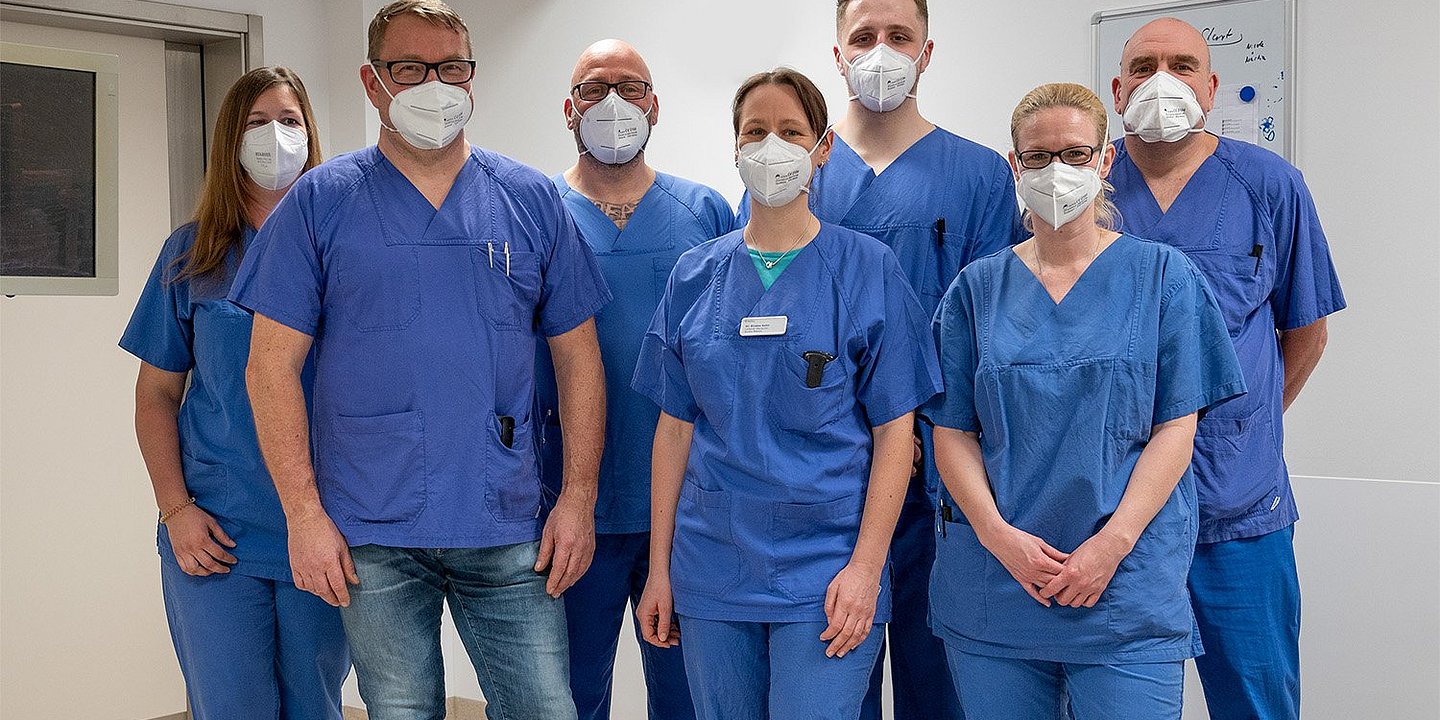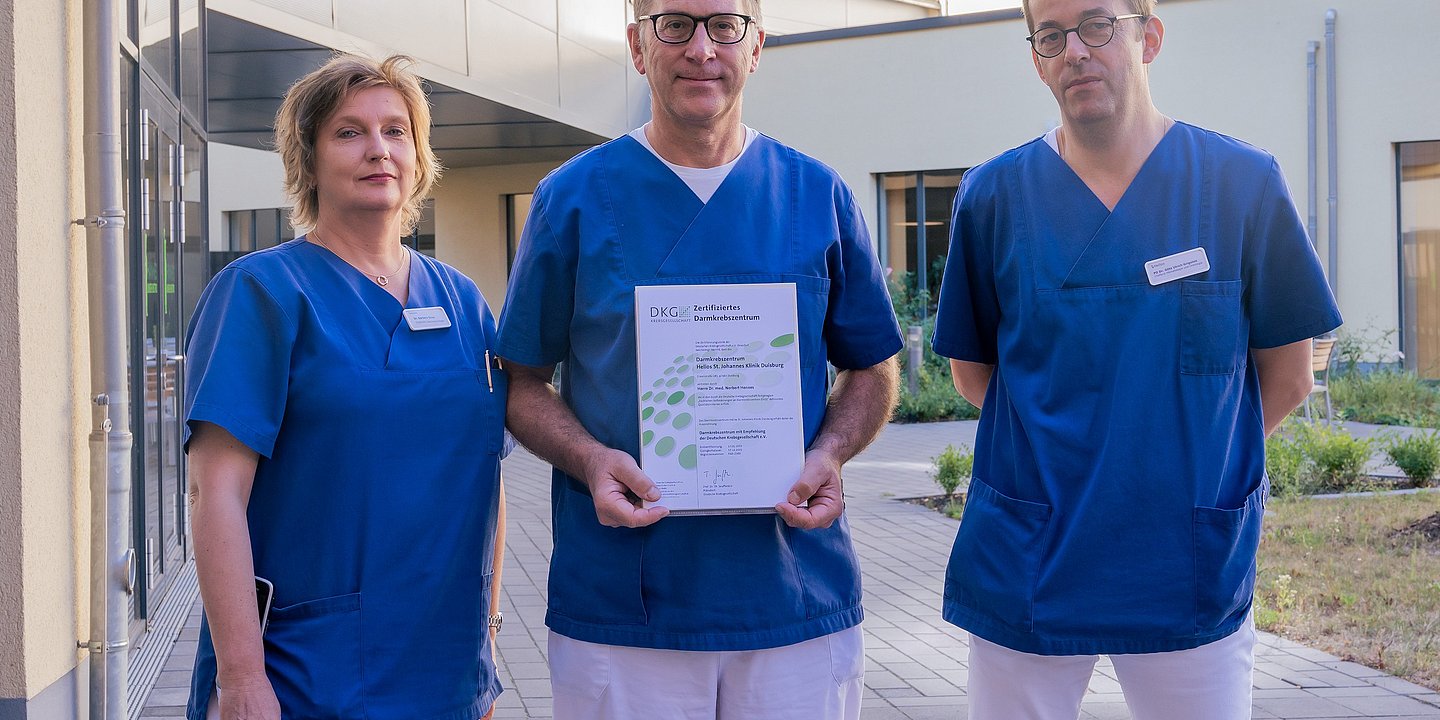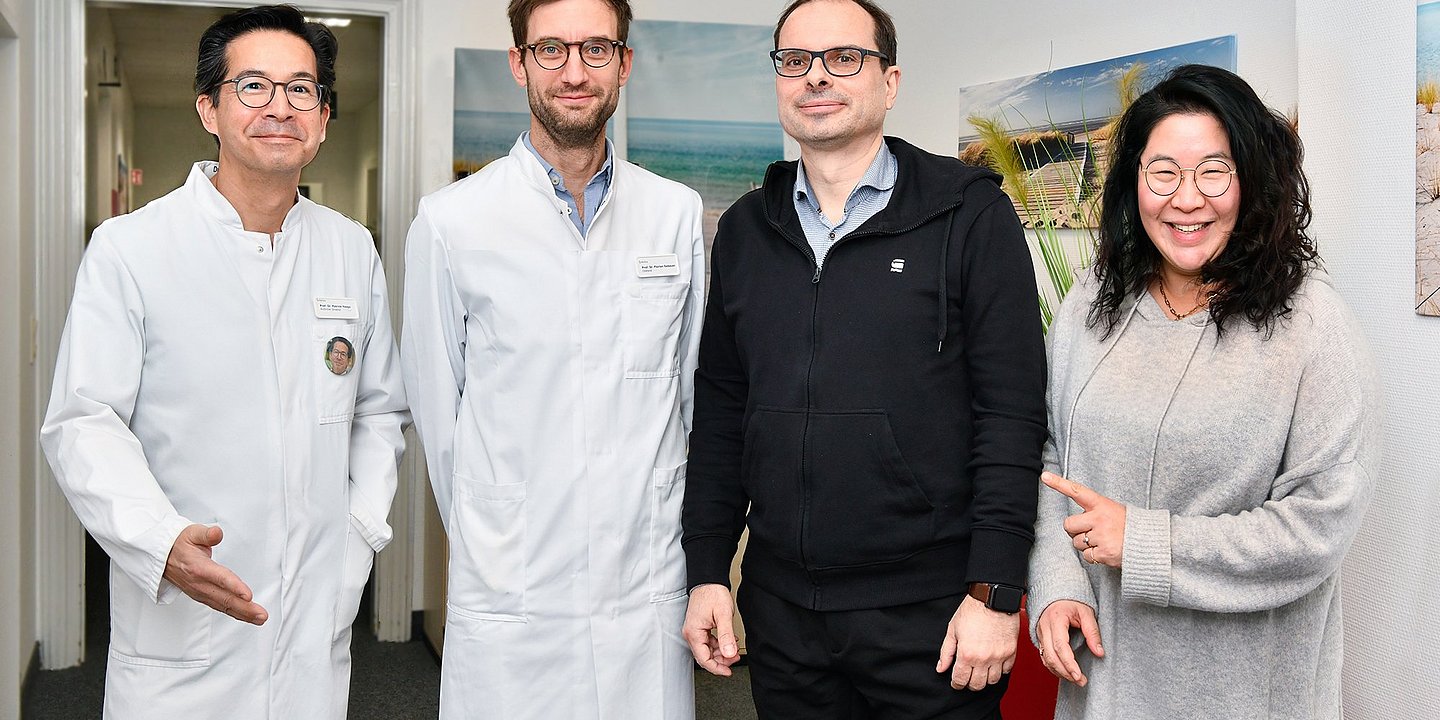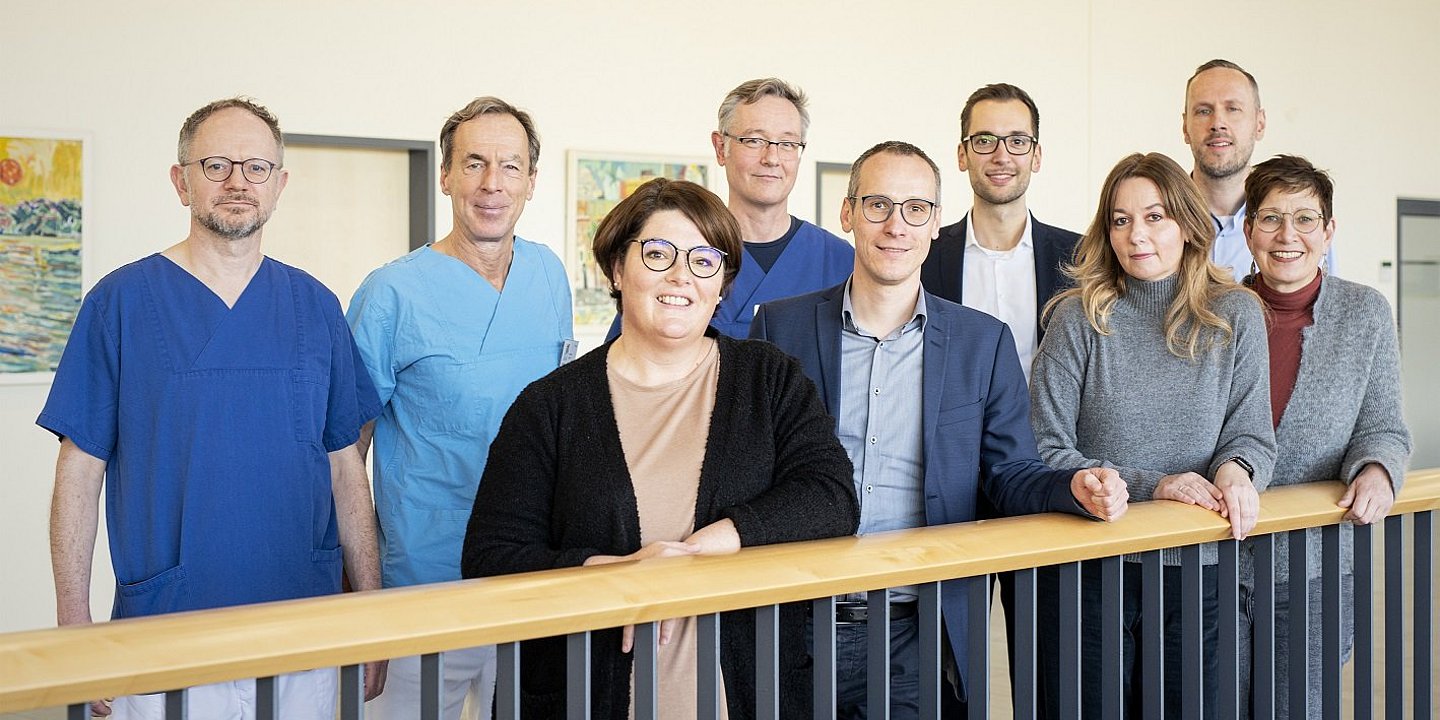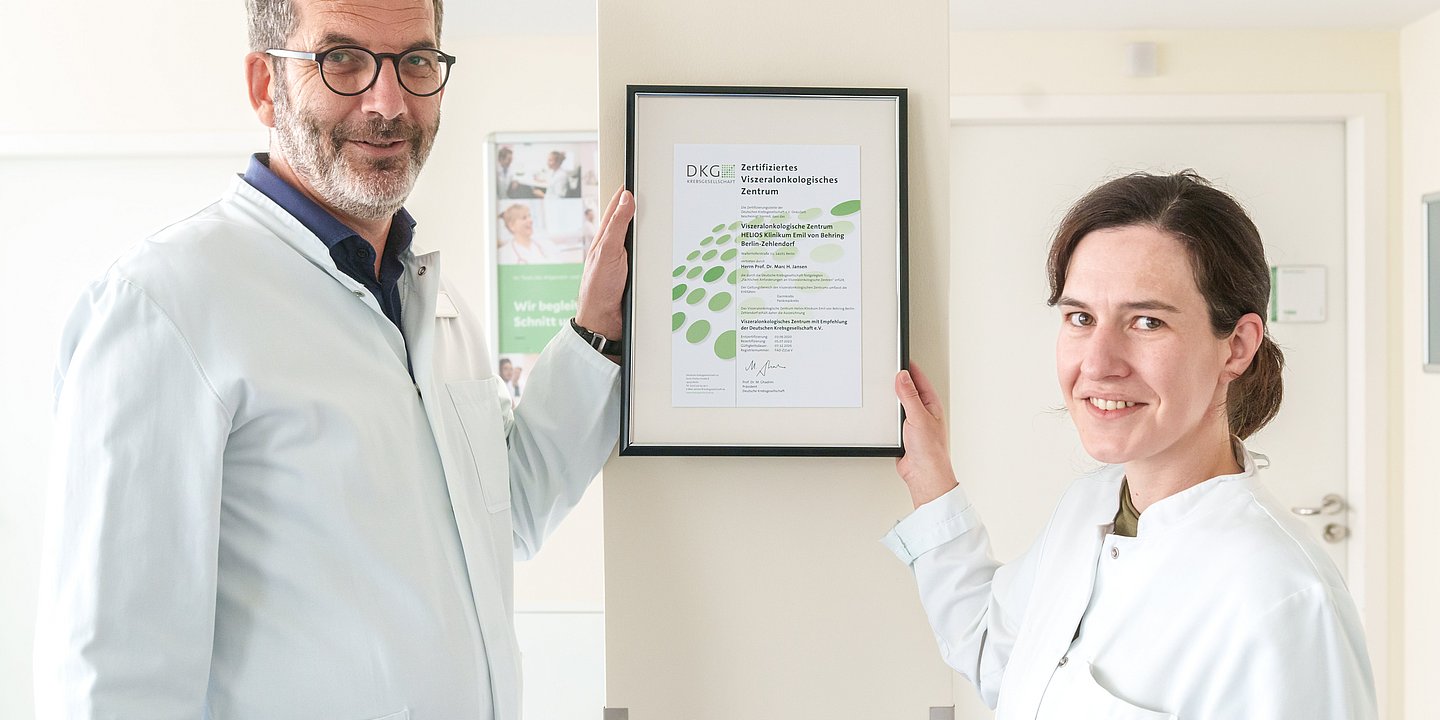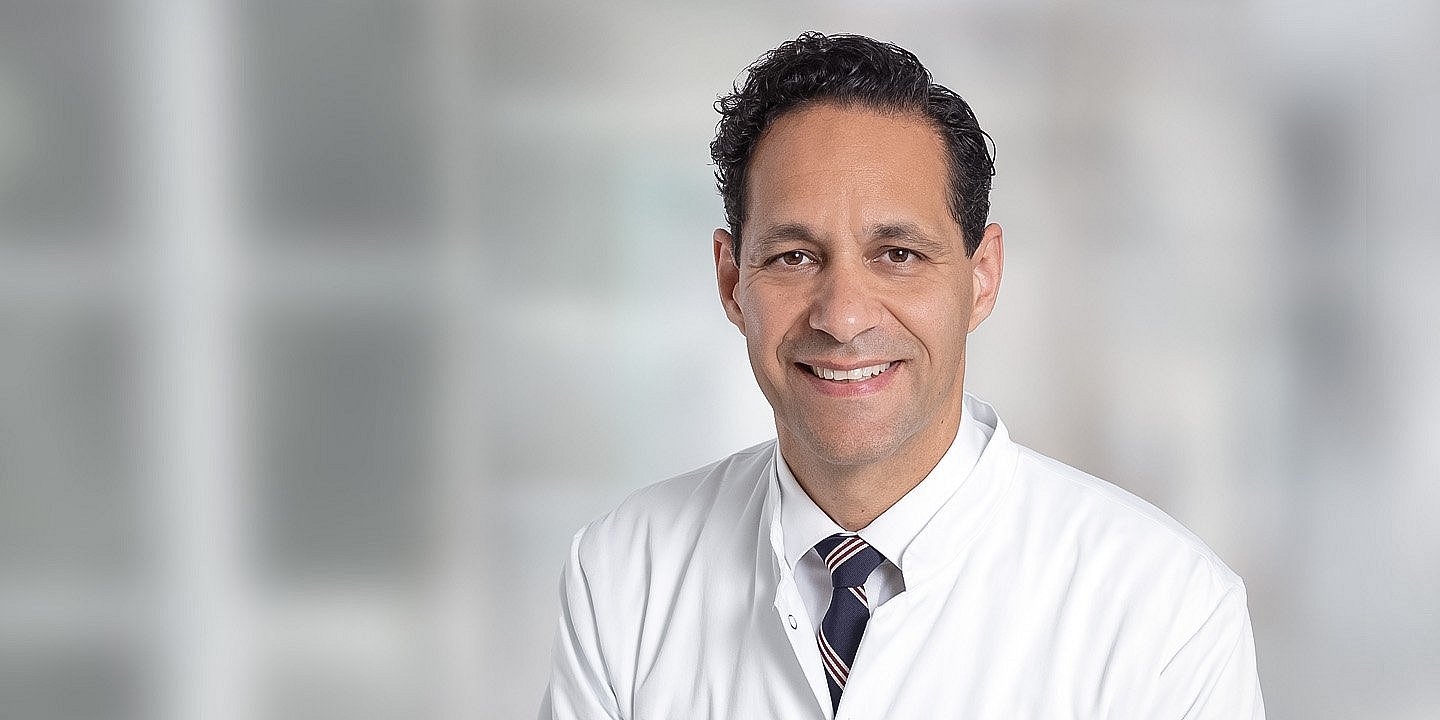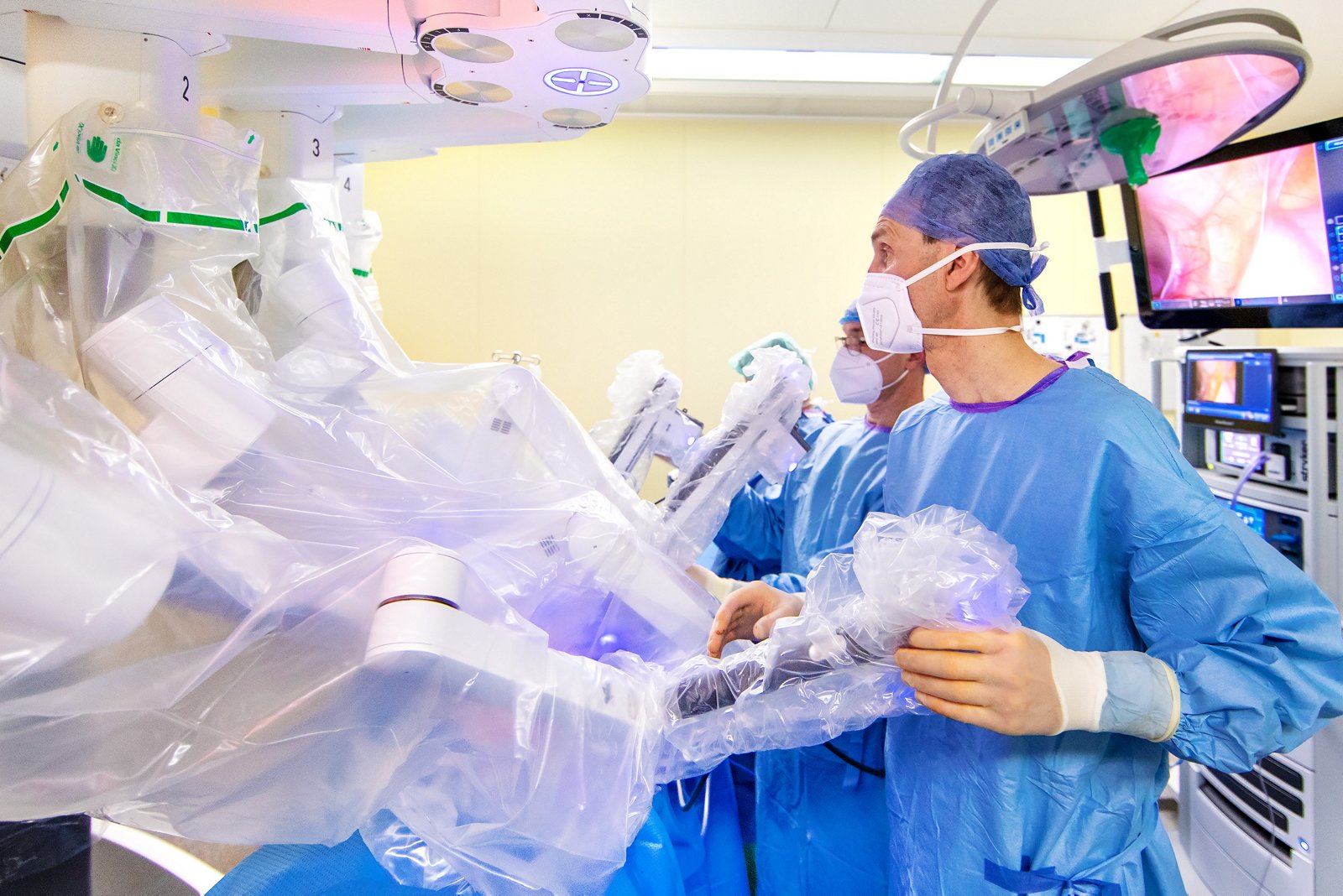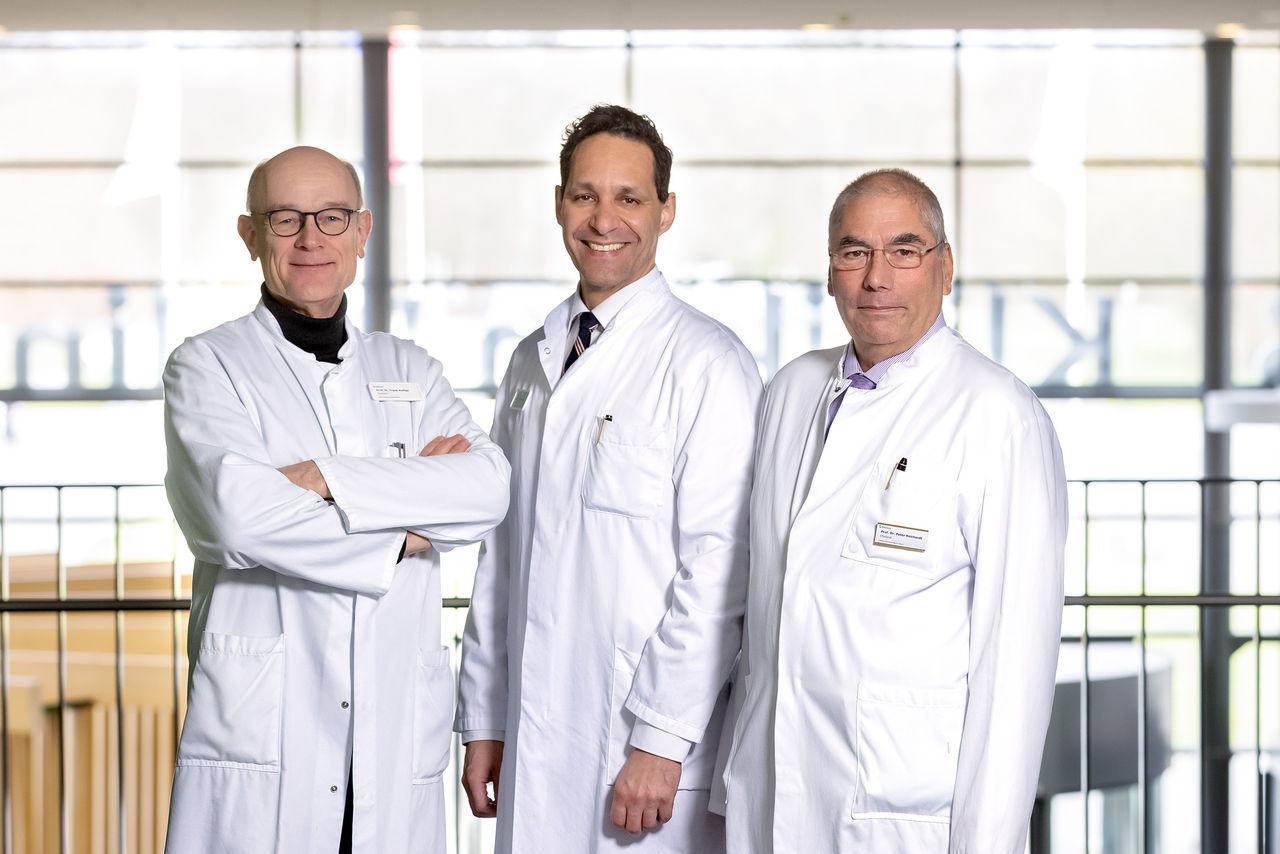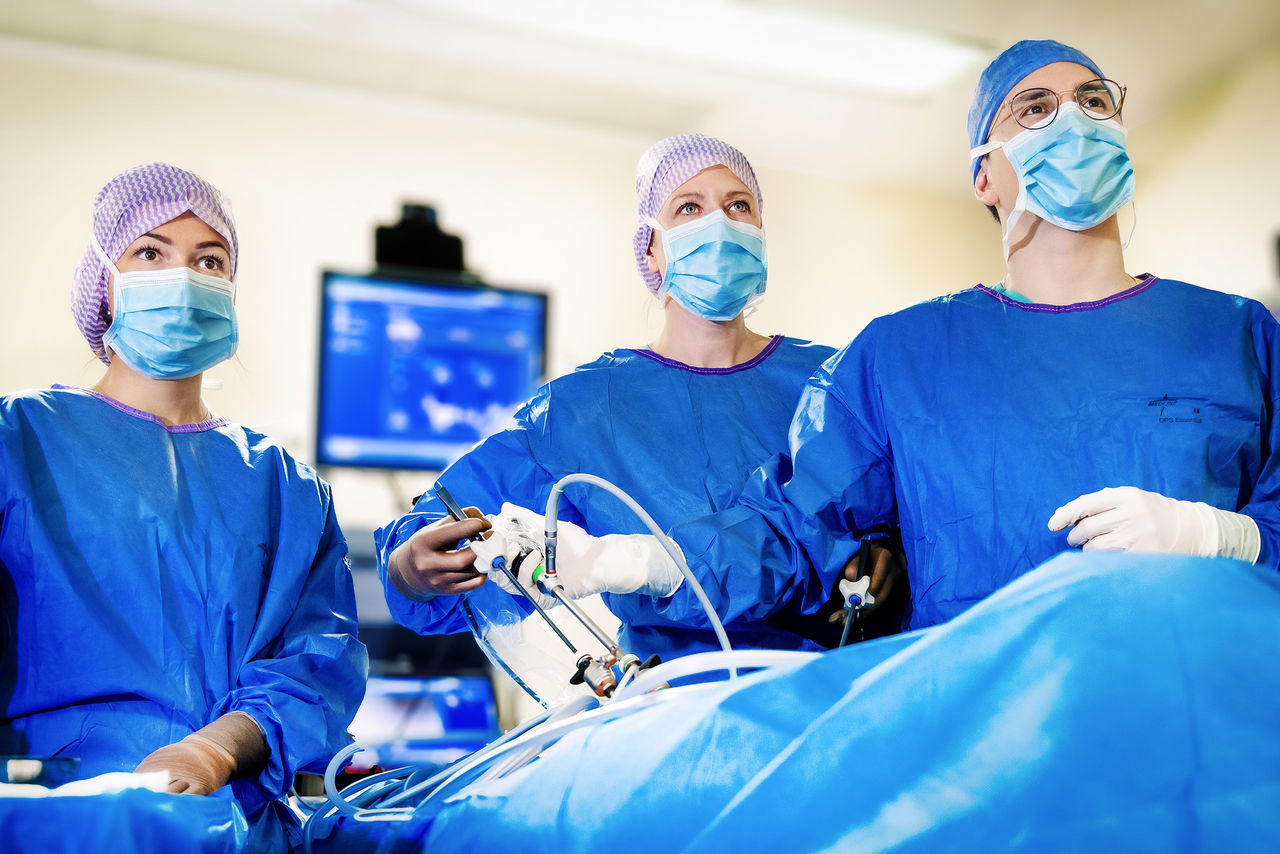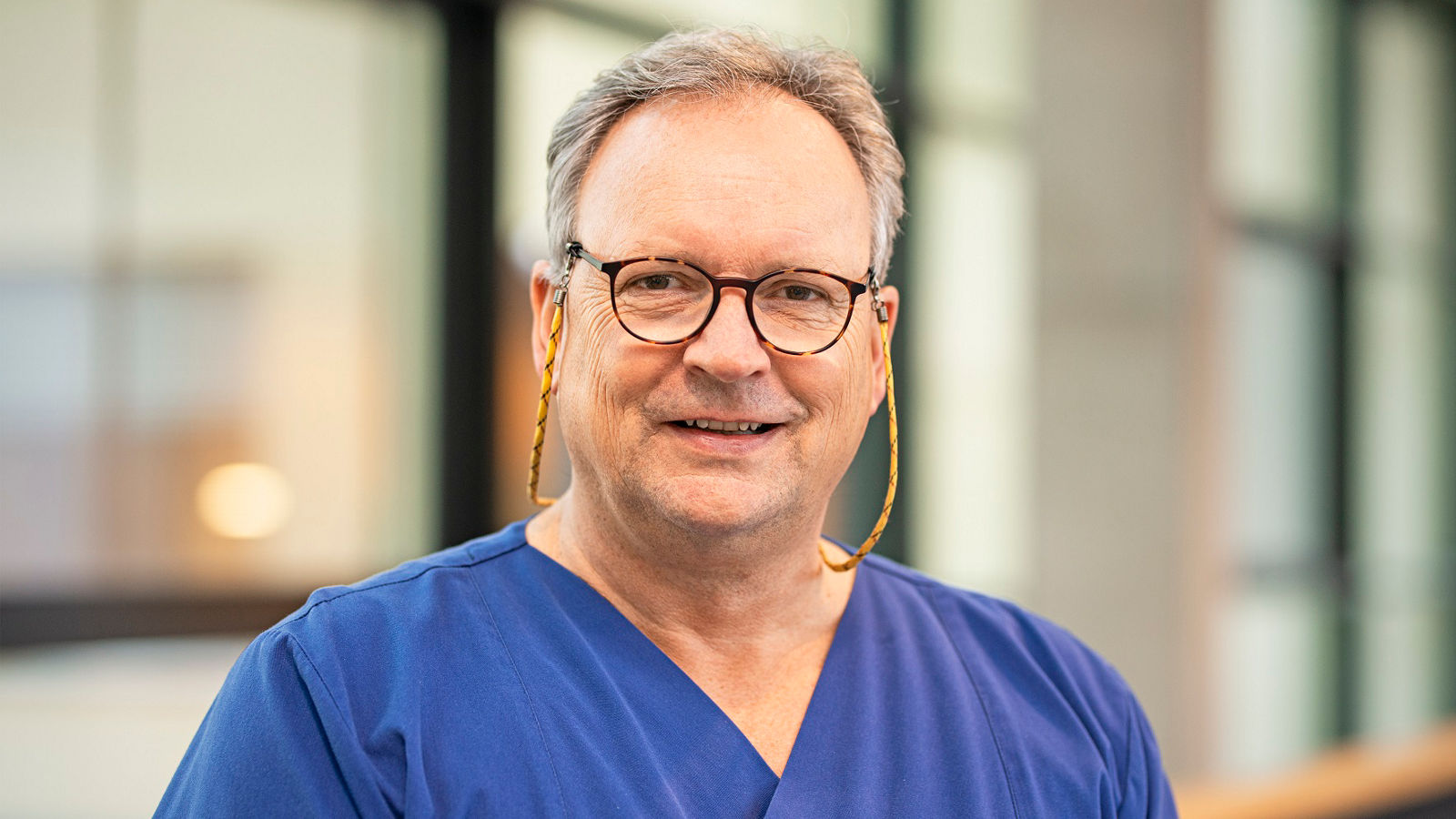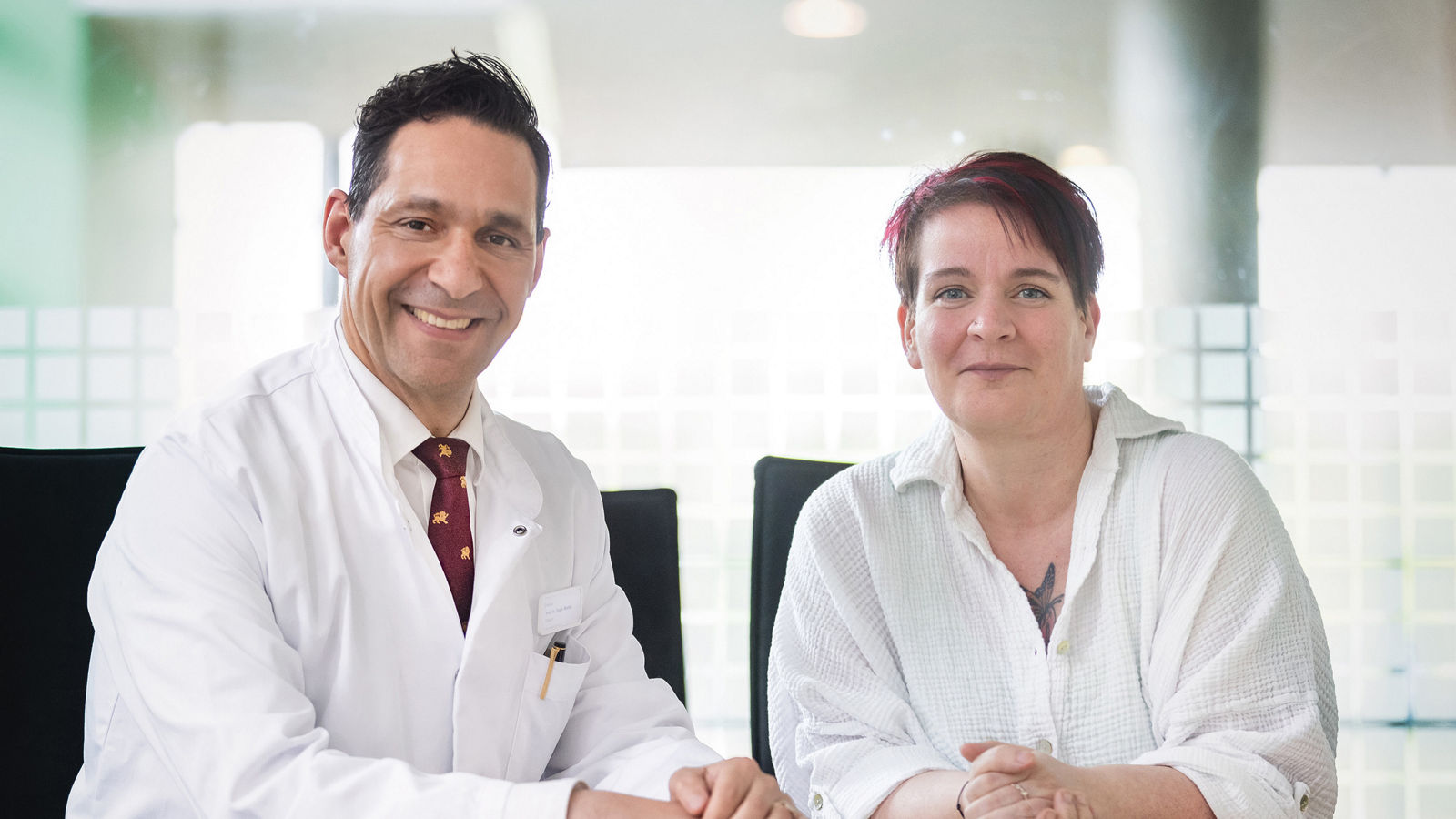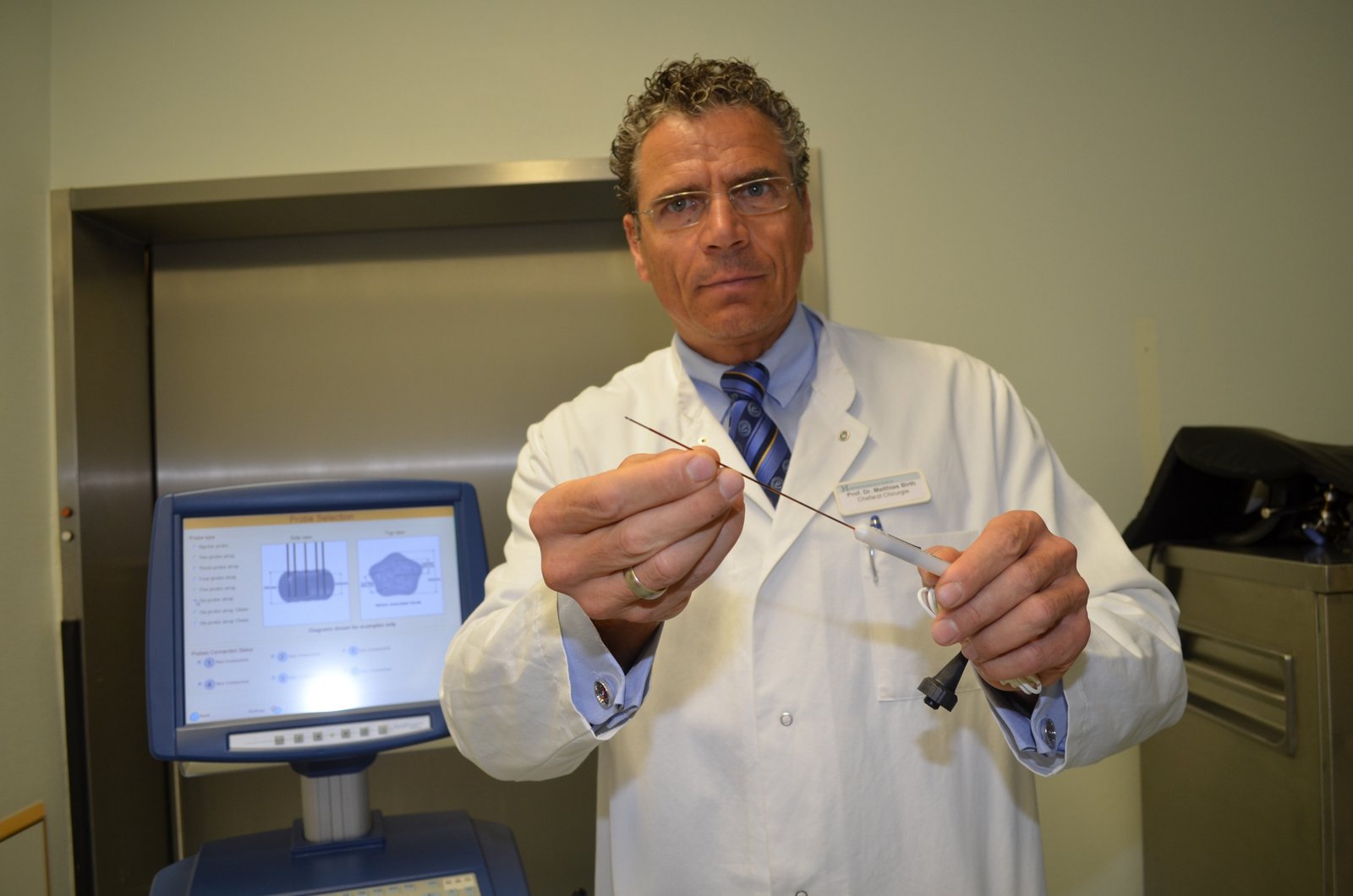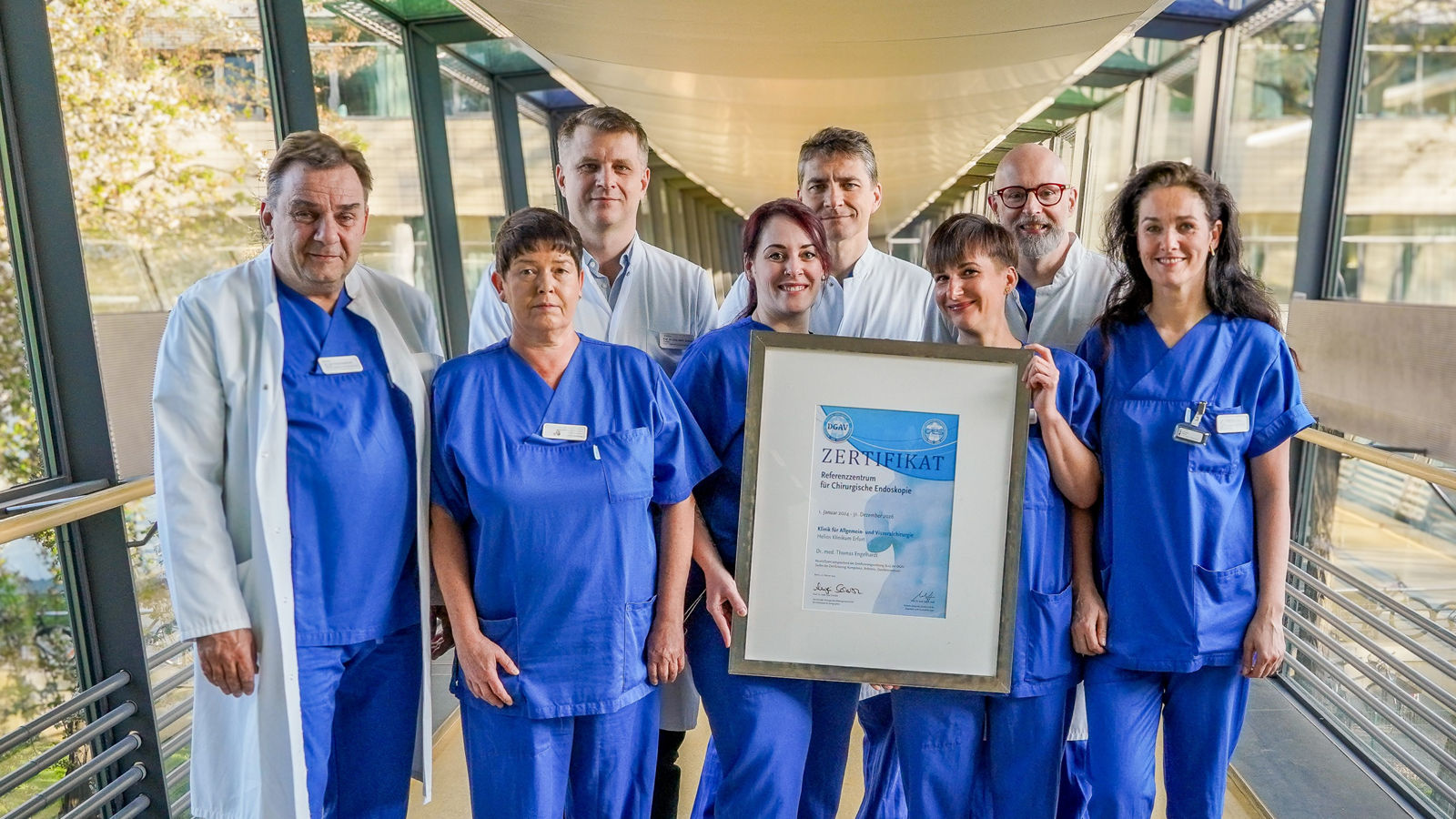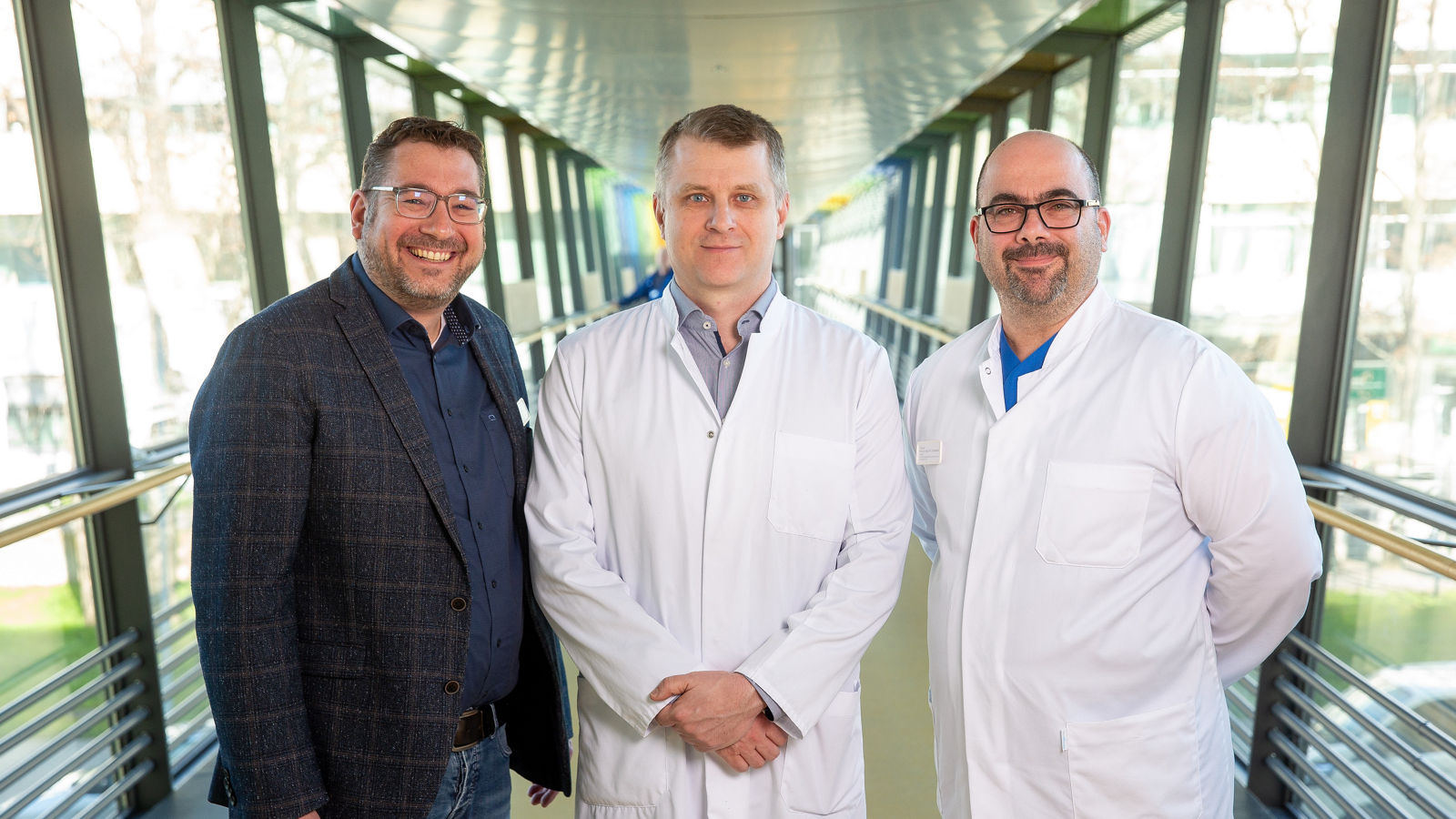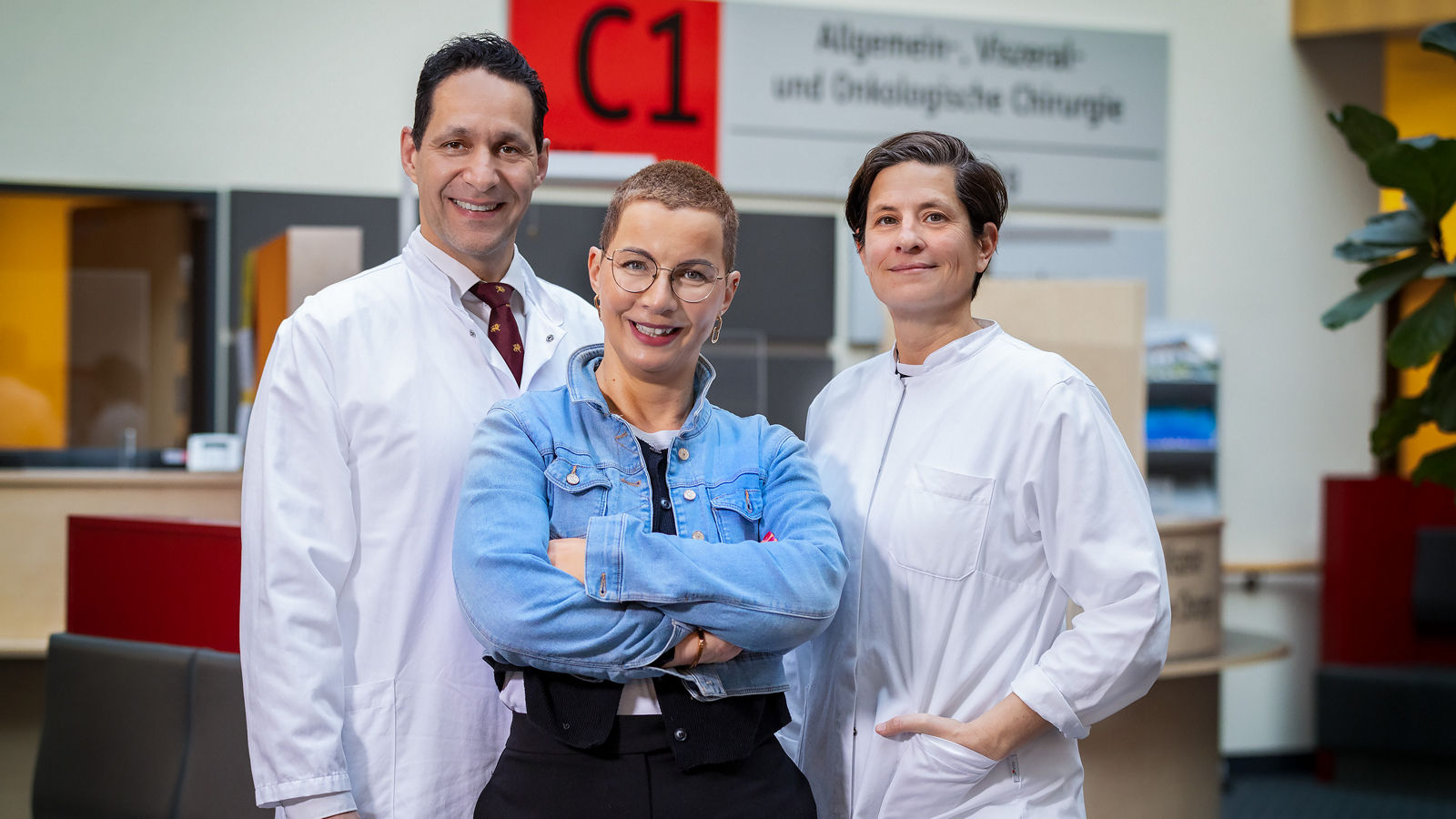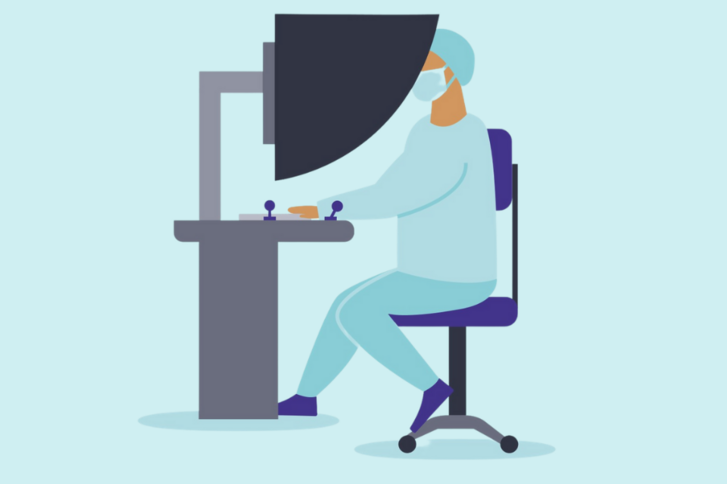
Robotic surgical systems set new standards
A robot behind the operating table: at first glance, this sounds weird. However, statistics show that robotic surgical systems are of great benefit to patients and doctors. Helios Hospitals are implementing the state-of-the-art da Vinci system.
Human-robot teamwork
The da Vinci system consists of a console and a robot with four arms. The arms of the robot and therefore the instruments on the operating table are controlled from the control console. Special hinges ensure the precise movement of the robot's arms in all directions. The robot does not make any movements on its own. The surgeon's movements are transmitted directly, and the system compensates for even the slightest tremor.
Thanks to a modern camera and optimized lighting technology, a surgeon receives a realistic and ten times magnified 3D image of the surgical area. The finest structures of the human body, such as nerves and blood vessels, are displayed with high-resolution image quality. The robot also supports the operating surgeons from an ergonomic point of view, as it helps to avoid awkward posture for several hours. Working in a seated position prevents fatigue and improves the surgeon's concentration.
"Modern da Vinci robotic surgical systems are used in six Helios Hospitals throughout Germany. Patients with neoplastic diseases of the internal organs are the ones primarily benefitting from the use of this precision surgical technique."
Prof. Dr. Thomas Steiner, Chief Physician of the Urology Department and Medical Director | Helios Hospital Erfurt
The more complex the intervention and the more significant the restorative nature of the operation...
... the more impressive the medical benefits are:
- faster wound healing
- smaller scars
- fewer blood transfusions required, e.g .: colon resection / colon surgery - no robot: 8.9 percent, using robot: 0 percent
- fewer complications: radical prostatectomy / complete removal of the prostate - no robot: 16.3 percent, using robot: 7.1 percent
- shorter hospital stays: esophageal resection / surgical removal of the esophagus - average hospital stay in Germany 19.5 days, at Helios Erfurt after robotic surgery 9.7 days; another example: rectal proctectomy / rectum removal - on average 9.1 days without a robot, 6 days with a robot
General and visceral surgery
“In this area of surgery, we have managed to cover the widest range throughout the entire concern. We are very proud of our work,” emphasizes Prof. Albrecht Stier, Chief Physician of the Clinic for General and Visceral Surgery, Helios Hospital Erfurt. Since July 2020, operations to remove the esophagus in Erfurt have been carried out only with the use of robots. This is currently a unique phenomenon for Thuringia and the entire Helios concern. “The results of surgical interventions using da Vinci robots are always impressive. I am sure that the symbiosis of a human being and a machine ensures the highest quality of treatment for our patients. This is just a taste of things to come!” says Dr. Markus Mille, Chief Physician of the Department of General and Visceral Surgery.
Gynecology
Gynecology and Obstetrics Helios Hospital Erfurt is one of the first hospitals of the Helios concern where a robotic surgical system was introduced in gynecology. “We are using an operating robot for severe diseases of the uterus and pelvic floor more and more often. Removal of tumors and unwanted tissues takes place with the utmost precision,” says Assistant Professor Dr. Gert Naumann, Chief Physician of the Obstetrics and Gynecology Clinic, Head of the Gynecological Tumor Center.
Highly obese patients are the ones particularly benefitting from robotic surgery as they have previously had to switch to open surgery in such cases.
Thoracic surgery
Helios Erfurt Thoracic Surgery and Thoracic Endoscopy Hospital is the first hospital in the Helios concern to use a robotic surgical system in thoracic surgery. “Both the expectations from the use of the system and the excitement that followed were high,” said Dr. Jörg Kluge, Chief Physician of the Thoracic Surgery Clinic. “At the moment, with the help of a robot, we have successfully performed surgical removal of the thymus gland and the removal of various parts of the lungs. What impressed me the most was the excellent view of the surgical area and minimal blood loss."
IN NUMBERS:
At Helios Hospital Erfurt, the main focus was on the development of a robotic surgery system in the field of visceral surgery. Throughout Germany, the share of urological interventions is 67 percent.

